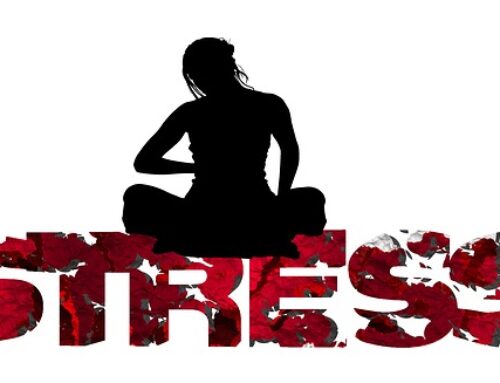It is well known in the healthcare arena that people who suffer from depression, GAD, and/or panic attacks also tend to suffer from other types of physical pain, such as low back pain and chronic, daily headaches.
While researchers know a great deal about each of these issues, there is still a great deal that is not known or not understood. The link between depression and chronic headaches is a typical case of which came first? Does depression cause low back pain, migraines, cluster headaches, and/or daily headaches? Or do people become depressed because of the pain they are suffering?
While some research shows that people who endure pain, such as sciatica, tend to suffer from fewer bouts of depression than those who have migraines, for example, many doctors believe it isn’t the pain that causes depression but the other way around.
Why Would Depression Cause Chronic Headaches?
This is where the relationship between the two becomes cloudy. Some believe headaches, especially migraines, play some part in the development of depression or it could be the reverse.
On the other hand, it could be an environmental factor that is playing a part that scientists, as of yet, are unaware of.
One Thing That Is Known
There is one thing that doctors and researchers agree on, however, and that is that those who report suffering from chronic headaches, especially those with migraines that have auras, are more likely to have major depression issues.
Therefore, doctors are urged to ask patients who report migraines or severe daily headaches if they are also suffering from depression or if they have had suicidal thoughts, which is often the case for those who suffer from cluster headaches.
Can Medication Help?
While almost everyone who reports being depressed is given anti-depressants, most who report suffering from headaches and migraines are not. This is because the commonly used anti-depression medications, SSRI’s, cannot be used in combination with triptan drugs, which are the usually prescribed medication for migraines, chronic headaches, and cluster headaches.
This is where the medication solution becomes tricky. Should doctors give anti-depressants or triptan? Each doctor makes this decision on a case-by-case basis. It seems though that no matter which way you turn, some issue is not going to be addressed.
If a patient is given anti-depressants, their headaches are not being treated. If triptan is prescribed, the depression is left untreated.
Another Solution
As a chiropractor, I see quite a few patients who complain about chronic daily headaches. While some of these headaches are in response to injuries or accidents, I’m often surprised at the number of people who simply choose to live with their headaches because they are taking anti-depressants.
The 3 Things You Should Know about Depression and Chronic Headaches
What if we were to think about depression and headaches and other chronic sources of pain from a different perspective?
1. Mismanaged Stress
Why is it that some people, when faced with a stressful situation, fall apart while others manage to laugh and make fun of the situation? I have found that it is an expression of their lifestyle, state of mind, and how they manage their stress.
Everyone has dealt with a stress-related headache in their lifetime. Those headaches that happen due to tight muscles in the neck, shoulders, and head, that can be stopped with a light massage. Why do we look at chronic headaches, migraines, or cluster headaches differently?
Cluster headaches and migraines have been linked to a physical reaction when the body finally releases long-term, pent-up stress.
I have personally seen great success with patients who have effectively managed their stress, reduce the frequency and severity of chronic daily headaches. Perhaps it’s time we addressed stress issues rather than immediately jumping on the medication bandwagon.
2. A Pattern
Again, while there is much that we don’t understand about the relationship between chronic headaches, depression, and GAD, a pattern appears to be emerging.
Studies show that people often suffer an onset of anxiety, followed by a migraine or other type of headaches, which was in turn followed by a major bout of depression. We don’t know if the depression was caused by the headache or the other way around, but these three events tend to run together.
If we were to address stress and feelings of anxiety through holistic, alternative means, we might stop episodes of depression as well
3. Addressing the Issue

Image by rhythmuswege on Pixabay
I believe we can cut back on the number of people afflicted with these issues by addressing the main culprit, which is the mismanagement of stress.
This can be achieved in several ways or by using a combination of the following methods:
- Chiropractic Care- This would include not just adjustments, but massage therapy, exercises for stretching and physical stress release, etc. Studies show regular chiropractic care can improve emotional and mental health.
- Massage Therapy- This has been shown to offer a great many benefits, including stress relief and fewer episodes of GAD.
- Yoga- Harvard Health recommends yoga as offering a natural release from anxiety by lowering the stress response from the body.
The Bottom Line
Depression and anxiety are very real and very serious mental health issues. I am not suggesting that patients stop their medication or do anything without their doctors’ approval.
This article simply points out the obvious; if what we are doing isn’t working why not try something else?
About Dr. Brent Wells
Dr. Brent Wells, D.C. founded Better Health Chiropractic in Alaska in 1998 and has been a chiropractor for over 20 years. His practice has treated thousands of patients from different health problems using various services designed to help give you long-lasting relief.
Dr. Wells is also the author of over 700 online health articles that have been featured on sites such as Dr. Axe and Lifehack. He is a proud member of the American Chiropractic Association and the American Academy of Spine Physicians. And he continues his education to remain active and updated in all studies related to neurology, physical rehab, biomechanics, spine conditions, brain injury trauma, and more.







Leave A Comment